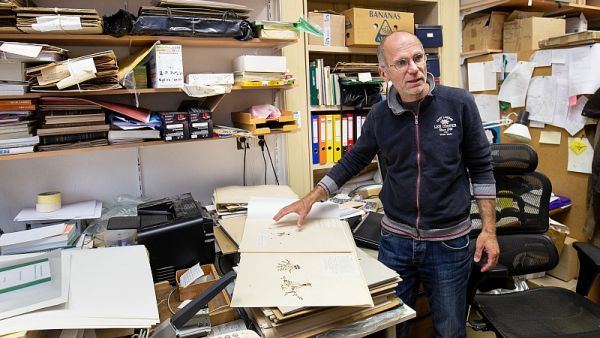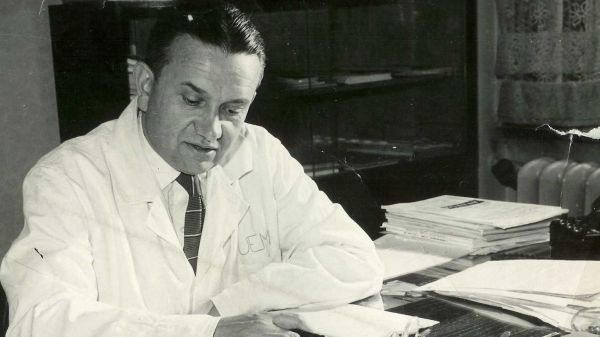The role small states can play
Tomáš Weiss from the Faculty of Social Sciences of the Charles University is the editor of a new book on the influence of small states in international security. “It may be interesting for Czech readers that the book devotes several chapters to the Czech Republic,” he says.
How excess vegetation burning changed Australia
“We really had no idea how big a role the Aborigines played,” say Petr Kuneš. An associate professor at CU, Dr. Kuneš was a member an international team that examined how colonisation changed vegetation management in Australia.
Celebrating women in science on 11 February
Friday, 11 February, marks the seventh International Day of Women and Girls in Science, celebrating the role of women in the scientific world and promoting gender equality. What do women scientists at Charles University enjoy the most about their work and what kind of challenges did they face?
Natural language generation research wins ERC grant
“Our goal is to create a universal natural language generator that will be able to learn from only a few examples and will not make mistakes,” says Ondřej Dušek from the Faculty of Mathematics and Physics. His work landed him a prestigious ERC grant.
The Herbarium: An archive of plant diversity
At present, the Faculty of Science of Charles University boasts a herbarium containing almost 2.5 million items. “Such herbaria (or collections of pressed and dried plant or flower samples) are living archives of plant biodiversity,” says botanist Patrik Mráz.
The year in science at Charles University
The year 2021 saw no end to the pandemic, which brought numerous complications, including for scientists. Nevertheless, scientific research continued with positive results. We offer a look back at science at Charles University over the course of the year.
Karel Raška to receive order of T.G. Masaryk
The founder of modern Czechoslovak epidemiology, Karel Raška, who contributed to the worldwide eradication of smallpox, is to receive the Order of Tomáš Garrigue Masaryk, First Class, in memoriam. His son, Professor Ivan Raška, writes about his father's contributions and career.
CU continues research at unique temple
It seems there were two, though many believe there was only one: the great temple in Jerusalem built by the Biblical King Solomon. The first temple stood on the Temple Mount but no material evidence of its existence has ever been found. However, in 2012, Israeli archaeologists unexpectedly discovered another site in some ways similar.
Podcast: The impact of Covid on education
“Have we learned anything new about the education system during the pandemic? And why is the economics of education becoming more important these days?” are questions host Katarína Stehlíková put to CERGE-EI’s Daniel Münich in the latest Talking Economics.
Podcast: Data was the key over the past year
The Talking Economics Podcast is back, and now, for the first time, is featured at Forum. In this edition, Katarína Stehlíková talks with CERGE-EI's Filip Pertold about the Covid-hit economy and data and policies to help. “We’ve learned from the Covid-19 pandemic that data is the key,” Filip Pertold says.
System predicted election outcome
Czechs last week who followed the outcome of the election at iRozhlas.cz as the results came in, benefitted from a predictive model designed by Associate Professor Marek Omelka and Ondřej Týbl from Charles University. The system they developed helped the scientists determine failry early on who had gained a majority in the lower house.
Spaces within spaces: The city inside out
In French, it’s known as terrain vague – vague terrain, as in a wasteland or empty lot. But in reality it is any disused or largely inaccessible space, sometimes wild, sometimes industrial, where form and function stop. Social anthropologist Radan Haluzík and a group of fellow researchers and artists made vague terrain their subject of study for years.
An exobiologist seeking signs of life
Jan Jehlička is a pioneer of the new 21st century discipline of exobiology. Together with colleagues, and using advanced devices such as Raman spectrometers, he searches for answers to questions such as: Does life exist beyond planet Earth? Did it exist in the past? Last year he won Charles University’s Donatio award.
How genes influence athletic performance
“Genetic testing makes sense in combination with other biochemical markers and various sensors for individual training. But there is no way it should lead to conclusions such as if you don’t have a sprinter’s genes, give up running,” says Associate Professor Miroslav Petr from the Faculty of Physical Education and Sports.
Vegetation change study in Science
“We expected the biggest changes in vegetation to be at the end of the Ice Age. Instead, we were surprised they were in the last four thousand years," says paleoecologist Petr Kuneš of the Faculty of Science. Kuneš and fellow experts' findings were published in the prestigious scientific journal Science.
-
FORUM EN 13 2024
Readers of FORUM EN can read the latest issue or older ones in our complete online archive.
-
FORUM 72 4/2025
Pro čtenáře FORUM nabízíme k prolistování kompletní archiv čísel ve formátu PDF. Těšíme se na Vaše podněty pro další témata našeho časopisu.































